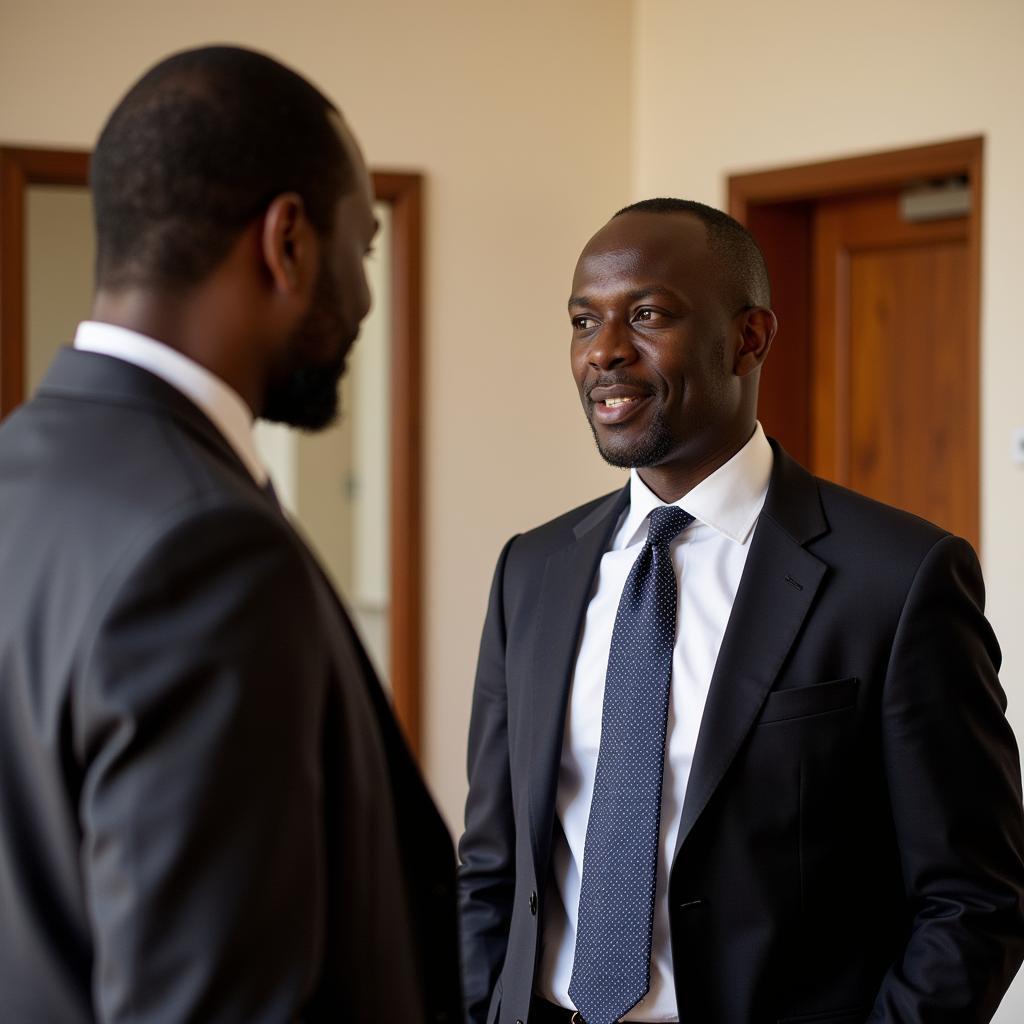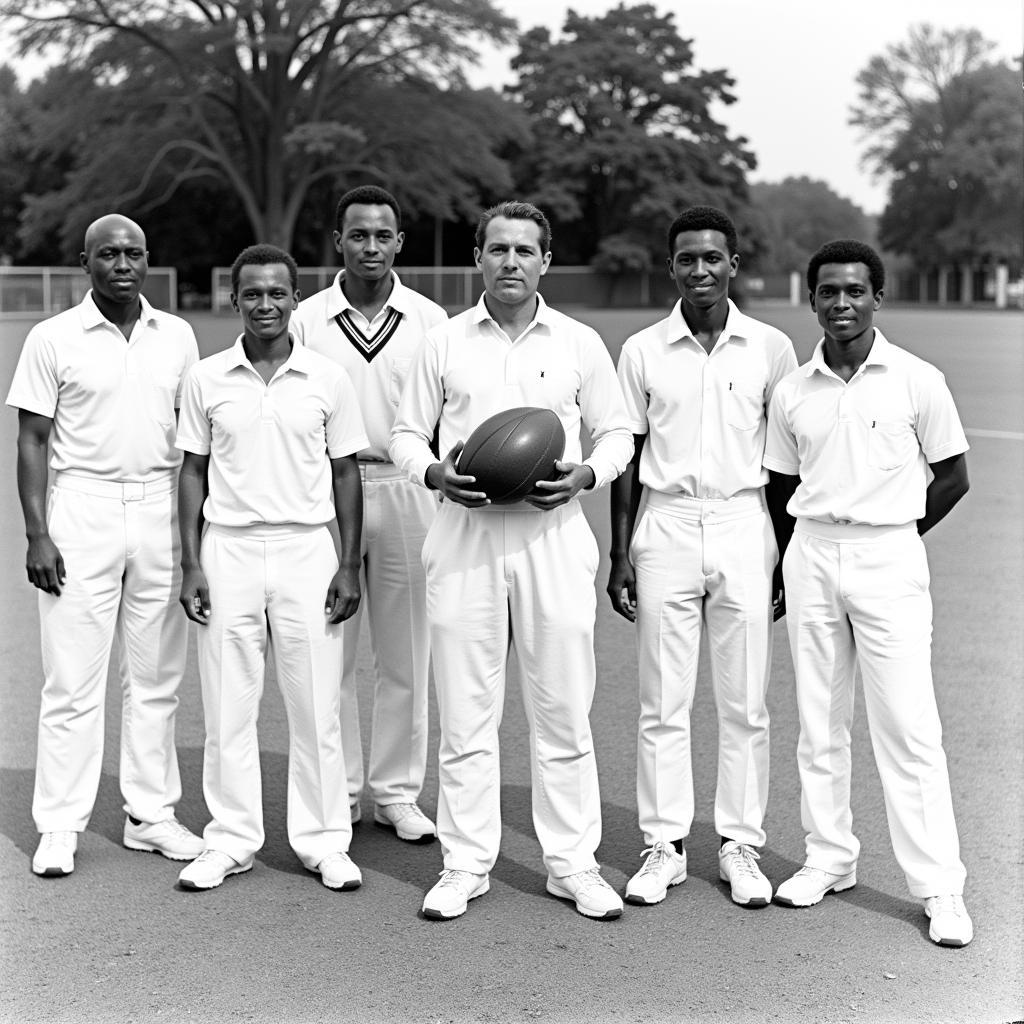A Deep Dive into African Genocide History
African Genocide History is a complex and often overlooked topic, encompassing more than just the Rwandan genocide of 1994. It’s a history filled with tragic events, often rooted in political instability, ethnic tensions, and the lingering effects of colonialism. Understanding this history is crucial for promoting peace, justice, and reconciliation on the African continent. 1994 african genocide
Beyond Rwanda: Exploring Other Instances of African Genocide History
While the Rwandan genocide is perhaps the most well-known, it is essential to recognize other instances of mass violence and genocide on the African continent. These events, often overshadowed by larger global conflicts, deserve equal attention and remembrance. For example, the Herero and Namaqua genocide in present-day Namibia, perpetrated by German colonial forces in the early 20th century, serves as a chilling reminder of the brutal consequences of colonial rule.
Furthermore, the Darfur genocide in Sudan, beginning in 2003, highlights the ongoing struggle for human rights and justice in the region. Understanding the root causes and consequences of these various genocides is critical for preventing future atrocities.
The Role of Colonialism in Shaping African Genocide History
The legacy of colonialism plays a significant role in understanding the complexities of African genocide history. Arbitrary borders drawn by European powers often exacerbated existing ethnic tensions, creating an environment ripe for conflict. The exploitation of resources and the imposition of foreign political systems further destabilized African societies. african continent death toll during european rule
“The scars of colonialism run deep,” explains Dr. Abena Osei, a historian specializing in African studies at the University of Ghana. “The systems of power and inequality established during colonial rule continue to fuel conflict and violence in many parts of Africa.”
Understanding the Root Causes of Genocide in Africa
What factors contribute to genocide in Africa? Ethnic tensions, political instability, and economic inequalities are often cited as key drivers. However, it’s crucial to move beyond simplistic explanations and delve into the deeper historical and social contexts that contribute to these conflicts.
The Rwandan genocide, for instance, wasn’t simply a spontaneous eruption of ethnic hatred. It was the result of decades of political manipulation and social engineering that exploited existing ethnic divisions.
The Importance of Remembering and Learning from African Genocide History
Remembering and learning from the past is essential for building a more peaceful future. Documenting and memorializing the victims of genocide is not only an act of respect but also a crucial step towards preventing future atrocities.
african colonies of germany The ongoing work of organizations like the African Union and various NGOs plays a vital role in promoting peace, justice, and reconciliation across the continent. “We must never forget the lessons of the past,” emphasizes Dr. Kwame Nkrumah, a leading scholar on conflict resolution at the University of Nairobi. “By understanding the root causes of genocide, we can work towards creating a more just and equitable world.”
Conclusion: A Call for Continued Engagement with African Genocide History
African genocide history is a complex and challenging topic that demands our attention. By understanding the root causes of these tragedies, we can work towards creating a more peaceful and just future for the African continent and the world. Continuing to engage with this history, remembering the victims, and promoting dialogue are crucial steps in the ongoing pursuit of peace and reconciliation. african holocaust rwanda
FAQ:
- What is the most well-known example of genocide in Africa? (The Rwandan genocide of 1994.)
- What role did colonialism play in African genocide history? (Colonialism exacerbated ethnic tensions and destabilized African societies, creating conditions conducive to conflict.)
- What are some of the root causes of genocide in Africa? (Ethnic tensions, political instability, economic inequalities, and the legacy of colonialism.)
- Why is it important to remember and learn from African genocide history? (To prevent future atrocities and promote peace and reconciliation.)
- How can we contribute to preventing genocide in Africa? (By supporting organizations working to promote peace, justice, and human rights, and by educating ourselves and others about the root causes of conflict.)
- Are there other examples of genocide in Africa besides Rwanda? (Yes, such as the Herero and Namaqua genocide in Namibia and the Darfur genocide in Sudan.)
- What is being done to promote peace and reconciliation in Africa? (Organizations like the African Union and various NGOs are working to address the root causes of conflict and promote healing and reconciliation.)
Further Exploration:
Consider learning more about african country independence 1962.
Contact Us
For further assistance, please contact us at Phone Number: +255768904061, Email: kaka.mag@gmail.com Or visit our office at: Mbarali DC Mawindi, Kangaga, Tanzania. We have a 24/7 customer service team.


